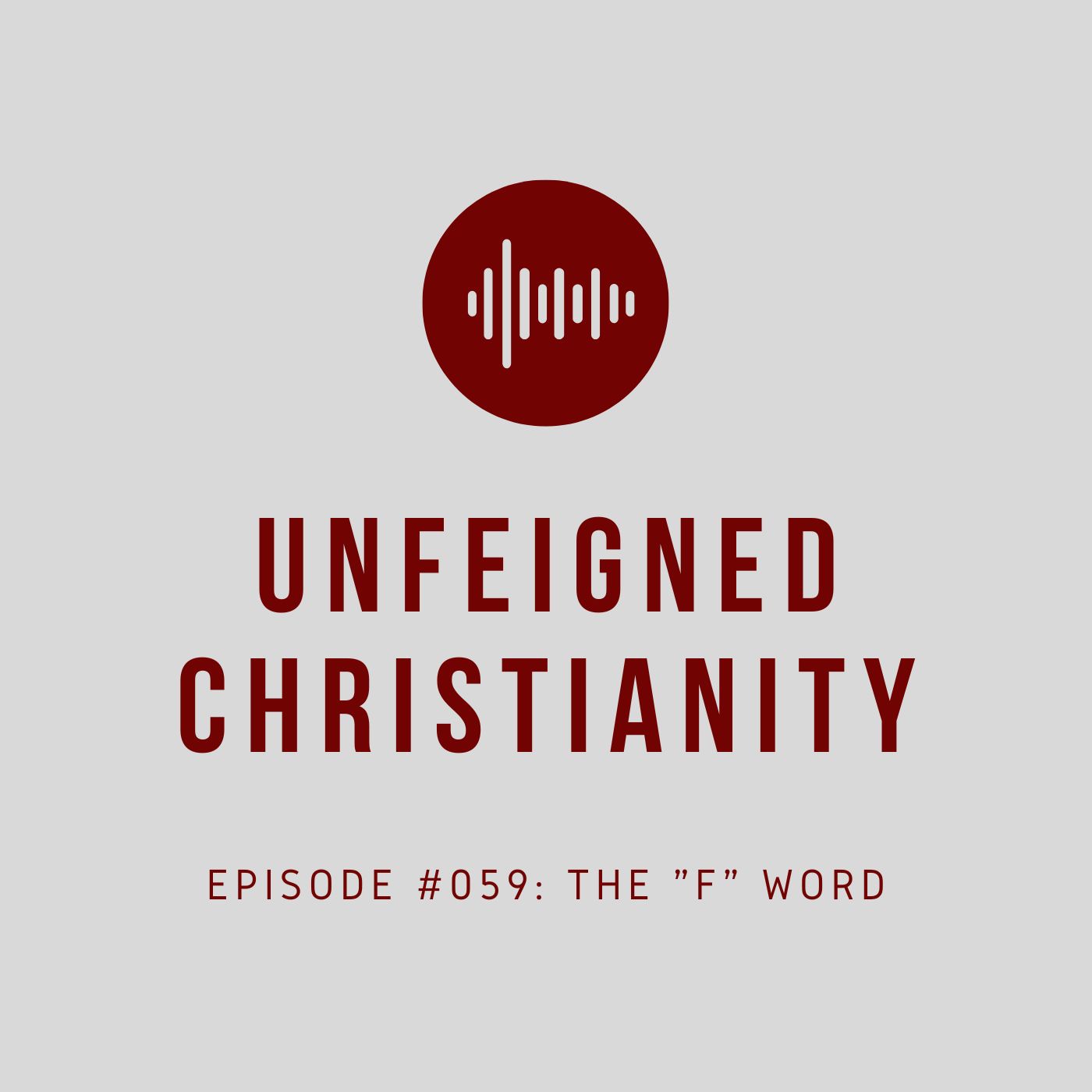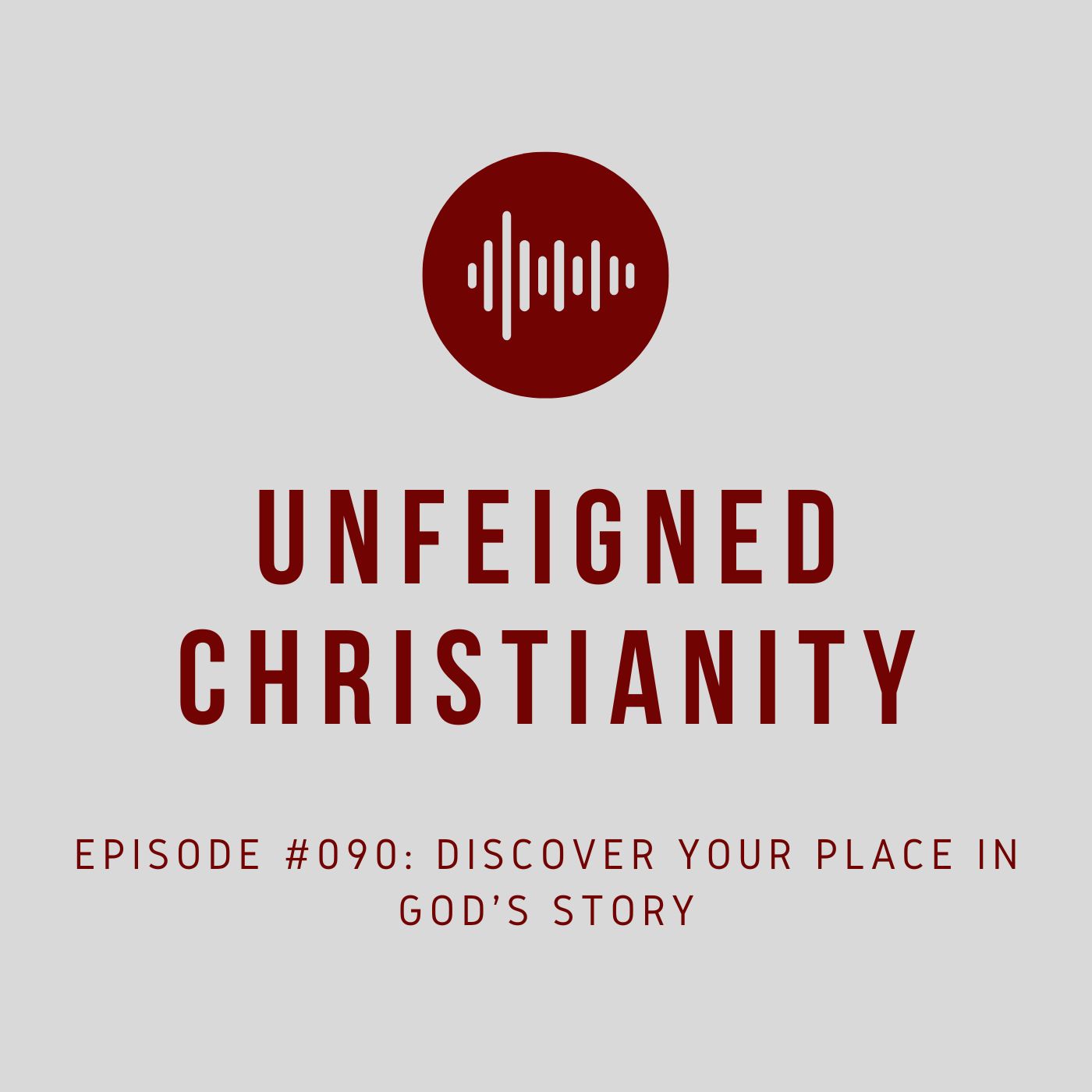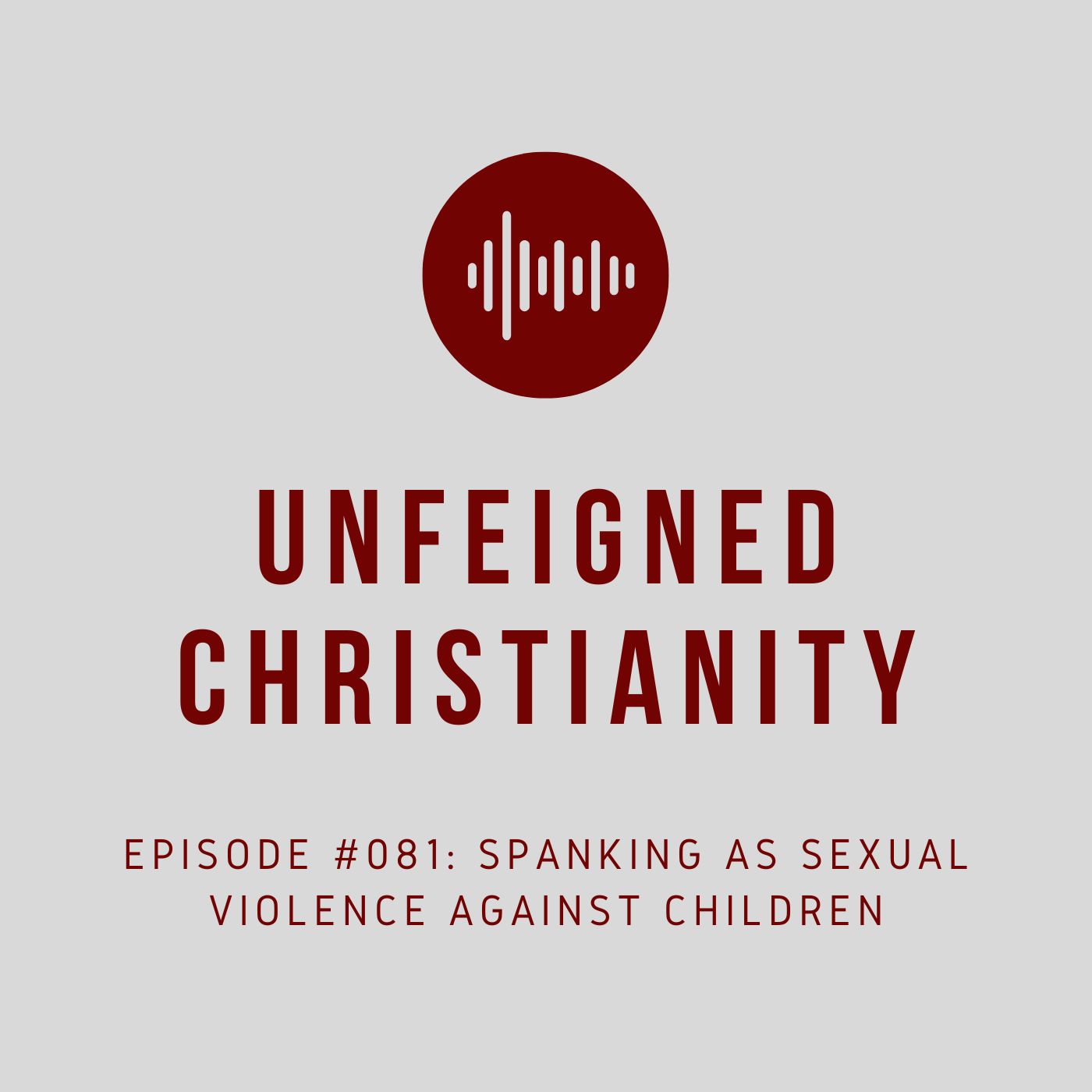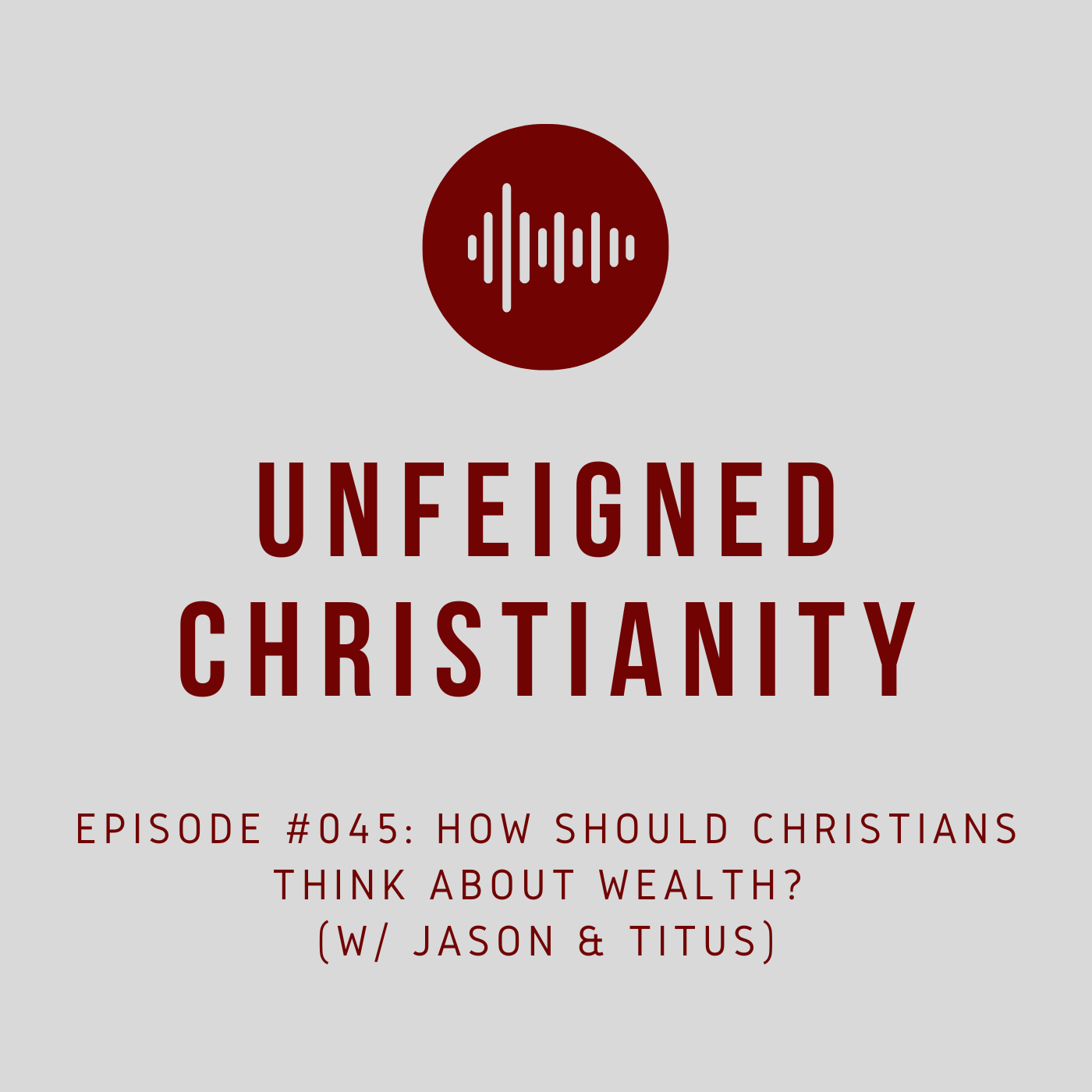Episode Transcript
Speaker 0 00:00:00 Hello friends. Welcome back to uny Christianity. I'm Asher Whitmer and I'm reviewing my book Live Free Making Sense of Male Sexuality. It's been four years since I published it, and so I'm just going back over and seeing if there's anything I would say differently or is it still the same good book that it was when I published it. Also, getting ready out, the way I'm reading it is I'm listening to the audio version, getting ready to release kind of a homemade audio version because the audiobook project has kind of been a failure for the last four years. So I'm gonna release, I'm gonna make available in audiobook version. It's just not gonna be on Audible or any of your audiobook platforms, unfortunately, at, at least at this point. So we'll, we'll be releasing that at the end of this month, but in prep for that, I'm listening through the files, making sure they're good, making sure it's, yeah, it's not horrible audio or something.
Speaker 0 00:00:55 And, uh, reading the book and kind of reviewing it as I go. So if you've missed the first 10 chapters, there's a link below where you can access all the reviews that I've done and you can catch up on different things that I would say differently. What I might change if I wrote it again today, if you haven't read the book or if you'd like to get the book for others, there is currently a Black Friday deal. You can get the hard copy like this for 30% off. I think it's normally about $17. You can get it for 13, I believe, on Amazon. If you want the Kindle version, you can get that for 70% off. It's just a $3 book right now, from now till the end of the month as a Black Friday deal. So go ahead and snag that if you're looking forward to it.
Speaker 0 00:01:40 There are things I would say differently as I'm reading through this book. There are things, especially some of how I interact with Romans, some of how I interact with kind of gender roles or expectations for men and women. I would say those things differently, but by and large, I'm still, I'm still satisfied with the message of the book and, and confident that it will help you get to the bottom. Particularly, I'm, I'm confident that it'll help you understand why you struggle with lust or why sex, sex addiction is such a strong pull for men. It'll also help you discover more of God and, and find a greater identity in him and just his love for you. And this chapter, we're, we're getting ready to do chapter 11, the F word, talking about forgiveness. This is kind of the culmination. I don't know if it's the most important chapter in my mind, is chapter nine, where we introduce the gospel, the gospel story. It's kind of split between chapters nine and 10, but chapter 11 addresses then now in light of the gospel, we can, we can move into this area of forgiveness. I think so often we emphasize forgiving people who have hurt us without talking through like us as the wounded people.
Speaker 1 00:02:59 What is who, who's there for us, what identity do we have and where do we find the space and the grace to forgive? Like, is that just something we pray and ask for, or is there something real and tangible that we can clinging to as we forgive other people? And I, I think forgiveness is something that is not taught very thoroughly or very well. And I, and I'll, I'll be honest with you, if I can promote the book I in reading this chapter, again, I'm very satisfied with it. I hope. I remember as I was writing it, I was like, there's this experience that I have had that somehow I want to desperately, um, transfer onto the readers. And I wasn't sure if I can do it. Like how, how do I do this? Like, I experienced Jesus in a very real way that enabled me to forgive, particularly my father.
Speaker 1 00:03:54 And, and it's, it's been the same thing, like obviously years in the years since that forgiveness process happened that I'm 31 now. That process happened 13 years ago, and it's been a, a, a pattern, something that I've, I've continued to, to follow in working through bitterness and working through forgiveness. And so obviously the wounds are different. The the events are different in each setting, but it's been very helpful for me in, in being able to remember who I am in Christ, what God's perspective is of me, and how I can forgive the, the people who have wounded me. And so I would buy the book, I would offer the book to you just for chapter 11. However, chapter 11 means the most if you read everything up until then, because I designed the book to kind of agitate this problem of wounding and pain. And you get to chapter, particularly chapter nine, maybe even get to the end of chapter 10.
Speaker 1 00:04:57 And you're feeling just kinda like, uh, like this is weighty. We've been talking about wounds and kind of these heavy, miserable things. And then you get into chapter 11 and it allows you, it shows you what you can do with the pain of being wounded. There's different types of pains that we deal with, and we can turn to sex to medicate any of those pains. And one of the pain is something that's not wounding. Maybe it's your own mistake or your own stupidity, or maybe it's just like the pain of life and being a part of a broken world. But this is specifically addressing when there's been a wound, somebody has wounded you, either a wound wounded action or a wounded absence. What you can do with that pain. And basically, I'll just summarize this chapter for you and then, and then you gotta go read it.
Speaker 1 00:05:51 But basically, the process of forgiveness is first of all, and this is why I address the gospel first, is we forgive and we can forgive because God has forgiven us. And so if we rightly orient ourselves in the story and how we wounded God, we were rejecting God and abusing God is it Word. And then he forgave us. And the, the picture that Jesus uses to show that is he tells the te the, the terrible <laugh>, the par of the prodigal son, where there's this father who has this inheritance, and the son comes and demands the inheritance, which is essentially to say, I wish you were dead. I want my money, my inheritance now, and I'm just gonna go, you know, live my life. And if you're a Christian, you know the story. It's a very common story. He goes out, he spends all his wealth frivolously and then ends up in a pigsty and comes home.
Speaker 1 00:06:53 He's reciting this confession because he knows that the father has the father. His father's servants have it better off than he did currently. And so he's just, Well, if I can be a servant, then I can come back, my father will accept me. But before he can get his confession out, while he's a long way off, the father comes running to him and restores him as son. He doesn't take him in as a servant. He asks his robe to be brought to him. He restores him as the son puts the ring on his finger, he kills the fatted calf. This means that he's gonna get more inheritance down the road according to Jewish custom, like he's restored back as a son. And so that's kind of this picture of forgiveness. This is what the father has done for us, is we have rejected the father and we've gone our own way.
Speaker 1 00:07:46 So for us to forgive it means that we're willing to release, we release them. And sometimes it's like, what are we releasing them from? I think when we're struggling with bitterness, the thing we're struggling the most with is we want them to see our pain and releasing the first step or the first piece to process through. And forgiveness is releasing them from ever seeing our pain. We're not gonna hold that to them or ever, you know, maybe it's even further. And we're wanting them to experience the consequences of our pain. The first thing to process through forgiveness is I release you. You no longer owe me anything. You don't have to see how you've made me hurt. And that's the first thing to process. The the second thing to process is being willing to pay the price so Jesus will pay the price for us.
Speaker 1 00:08:40 God took the pain and he paid the price. Obviously we look at Jesus dying on the cross. Um, we look at God, the, the investment, kind of what's depicted in the prodigal son is the investment, right? The, the financial, everything that he has, the way he's investing it back into the son who just abused and used it all and squandered it all. Well, what types of things do we have to pay in order to have a restored relationship with the person that hurt us? And one of 'em is, you know, the loss of time and relationship, like our relationship. That's one of the things, especially when you look at parental relationships, that's, that's very uncomfortable because maybe you have other siblings or you have other people who aren't even children who have a better relationship with your parent than you do. And are you willing to pay that, pay that uncomfortable feeling, pay that the long years lost and just, you know, because sometimes we're holding them to that, you know, all this thing you've missed in my life or whatever.
Speaker 1 00:09:46 Are we willing to pay that we release them from knowing, from seeing all of this. We also are willing to pay that price and, and forgive them in, in order to pursue relationship. But then another aspect to process through that, we don't, Well, uh, there's many d just so you understand, there's many different forms of paying the price. One, one of the paying the prices is taking the pain. So I release them from seeing the pain. Then what do you do with it? Well, I'm willing to take that pain and so I'm gonna move into relationship with them even when it's painful. But then there's, then there's an aspect of, well, what do, what do I do with that? Because that's where bitterness can really set in, is we need a place to go with our pain. And that's where I would, I would say it's important that we, through prayer, make a conscience and almost physical gesture of bringing the pain that we're carrying to the father and asking the Holy Spirit to, to drain our hearts, our souls from this pain.
Speaker 1 00:10:59 And that's a process that you may go through multiple times. I don't know any other way other than through prayer and through remembering reading scripture, remembering the story of how God loves us and he cares for us just as a mother comforts her child. So he cares for us. He comes running out to meet us when he, when we have rejected him, and he's eagerly waiting that picture of expectation. I'm looking for my son, my daughter, and he comes running down the lane to meet us and, and to grasp that picture of the father and then bring, we can come boldly before the throne of grace, bringing our pain, our sin, even just the guilt of having spent so many years in bitterness, we bring that to the father. That's a crucial step. But I also discuss like, don't, don't do it alone. Like invite other people to, to be a part of that story with you, because that's, that's also helpful in finding healing, finding forgiveness.
Speaker 1 00:12:02 You know, this, this chapter and the book itself, period does not address, I think I said earlier on a few things that I wish I would've addressed because it's not my story. I didn't address it, but I wish I would've kind of mentioned some things. One aspect that I, that I do not address is abuse. Whether that's sexual abuse or whether that's any form of abuse and the process of, of forgiving and abuser. I think sometimes we overemphasize forgiveness and never deal with the abuser and forgiveness is the piece. So I, as a wounded person, if I'm gonna have a healthy life, I've gotta somehow process through forgiveness, but that does not mean, and I address it a little bit, but I could have, I could have gone in further. That does not mean that we just ignore what happened. Or especially when there's abusive relationships or patterns of wound wounding behavior, that doesn't mean you just ignore that.
Speaker 1 00:13:04 When I say you release them from ever seeing the pain, I'm talking that sort of vengeance like that, that energy inside of us that just really, when there's an opportunity to kind of stab back at them, we, we, we do it impulsively. Like we hardly realize what we're doing. That thing, that energy, ah, we, we release that You don't, you don't have to make up for it. You don't have to have as much pain or more pain than I do. But often when we are dealing with abuse, abusive behavior, or even just very unhealthy patterns, as we are able to forgive and we can step back and kind of see the overarching pattern, and this is why I think it's important to bring in others as a part of the story too, because they can help us see these things. You may discover there's boundaries that need to be drawn because of some of the behavior that's happening, or maybe there's some specific appeals or actions to take toward the person.
Speaker 1 00:14:04 And that's not to, to do that is not bitterness. I think sometimes we can create this notion that forgiveness means we just overlook things. That's not forgiveness. I don't know what that is. That's foolishness because that's not even the most loving act for the person. If someone is behaving abusively, the loving thing to do is to create the conflict of confronting that. And that's a, that's a very difficult thing. I don't think the person who who has been abused should have to carry that load. Like obviously that's gonna be the presenting problem, right? The the thing, well, how do you know this person does well? I've had it done to me, right?
Speaker 2 00:14:50 But, but it should be like, there should be advocates, there should be people. It's, that's an extremely emotional thing to do. And, and when someone is truly being abusive, their number one accusation is gonna be, well, you're bitter. And that's a thing. We need third parties, other people stepping in and being able to say, no, there is something legit to address here. And, and that can be, you can be forgiving and processing through forgiving while also addressing abuse and these patterns of wound wounding unhealthy patterns. I don't know how, Yeah, unhealthy patterns of relating. You can be doing that all at the same time. They're not mutually exclusive. And so that's one thing if I would make this chapter better or at least add an additional chapter, that's something I would add as well. I would love to know, have you read the book? If you haven't, go ahead and pick up a copy if you have read the book.
Speaker 2 00:15:48 How did this chapter impact you? Um, one of the things that I've thought about is this was, to me, this was a really important chapter because it kind of helps us find personal health. But I haven't heard just a ton of feedback. Like probably the chapter I've heard the most on was chapter six, Fig Leaves. Like people found that really powerful. And so I'm curious, was this able to translate to a reader or does it feel kind of heady or like you're reading about somebody else's experience, but it's hard to see how it can be your own. I'd love to hear feedback on that. You can either leave it in the comments below or send me a message Tomorrow we're gonna move on to chapter 12, Clearing the Fog. And this addresses we, earlier on we talked about some lies that keep us from telling others about our story and our struggle. Now we're gonna address some lies that after we've found levels of freedom and, and this happens continually, I still deal with this. The devil will try to sow some lies or we'll just start taking some lies on that, make it really foggy and make it hard to continue living free. We're getting ready to transition. Chapter 14 begins, part three, staying free. So we're gonna address the few, few things as we make that shift. And one of 'em is the lies that may begin to cloud our vision. So we'll see you tomorrow with that one.




